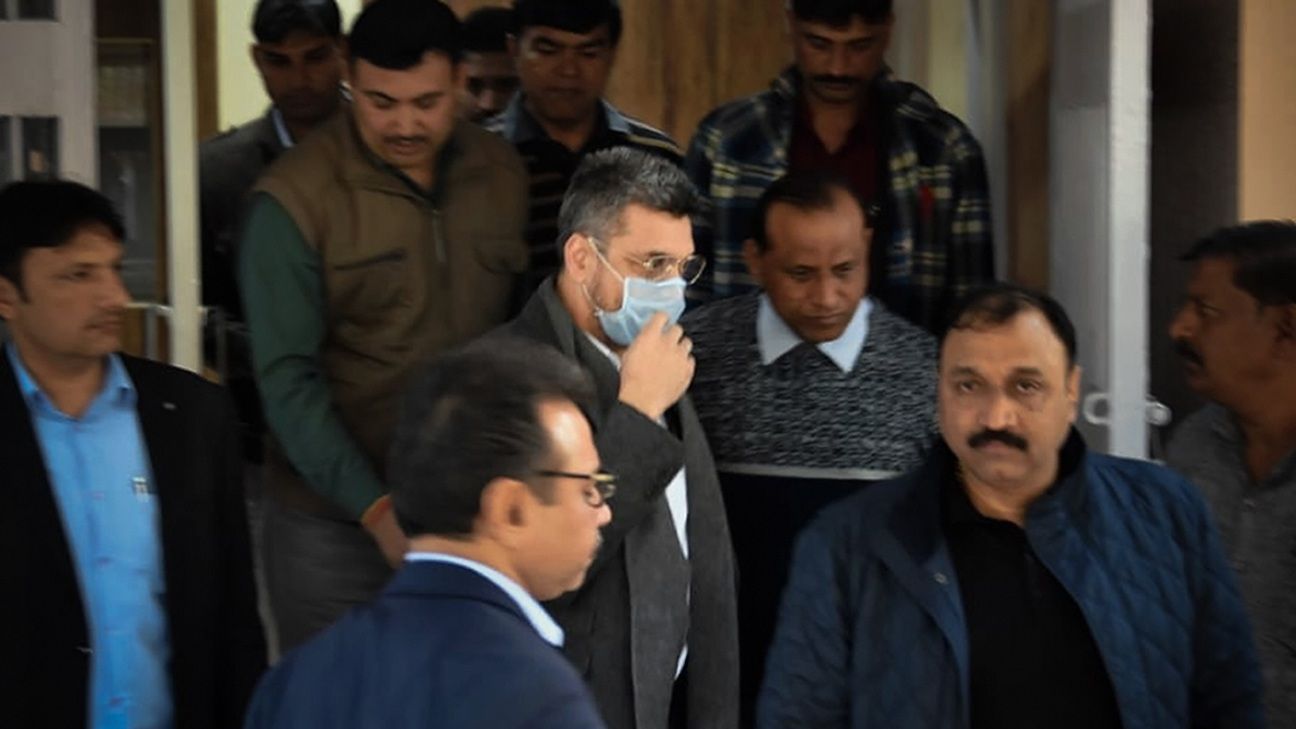
The extradition of Sanjeev Chawla, one of two prime accused in the 2000 match-fixing scandal centred around Hansie Cronje, is a logical "follow-up" to the delayed Delhi police investigation into the case, according to the police officer who pushed for a chargesheet to be filed against Cronje and Chawla. It's an opportunity, he said, to see the case in its entirety and whether other administrators were also involved, and called on the BCCI, ICC and their anti-corruption wings to be associated with the investigation for a better perspective of the issue.
Former Delhi Commissioner of Police Neeraj Kumar told ESPNcricinfo that the case now rests on the quality and depth of Chawla's interrogation by the Delhi police following his arrival in India in the early hours on Thursday. The extradition, Kumar said, was "unprecedented"; "never before has a country sent an accused in a case of sports corruption to another country in such a case."
The Delhi police had sought Chawla's extradition because of his alleged involvement in the match-fixing controversy that eventually implicated Cronje, who confessed during the King Commission inquiry to accepting money from bookies to fix matches during South Africa's ODI series in India in 2000.
Chawla's arrival in India on Thursday raised questions over why he had been extradited after all these years. Kumar says that this action was essentially to close the loop on the case.
When he began investigating the 2013 IPL corruption scandal around team owners and players, Kumar said he had been astonished to discover that no chargesheet had been filed in the 2000 Cronje case. "For 13 years the chargesheet hadn't been filed. I had the file traced and found that, in that time, there were 12-13 Investigating Officers who had changed. We made all of them sit down and reconstructed everything, and we incorporated the King Commission report and everything, and then we filed the chargesheet."
The extradition request then became the next logical step, Kumar says, which has finally come through "seven years too late". "Had the chargesheet been filed in time, and the same thing been done then, he [Chawla] would have been here at least seven years ago."
Regardless of the delay, Kumar said, it was important that the case is followed through for two reasons. "It sends a message that law enforcement doesn't forget. It doesn't have short memories, it has long memories and if someone is determined things can be taken to their logical conclusion." The second, he said, was the importance of having a central figure in the scandal now available for interrogation in order to understand the scale of the rot in cricket.
"Since he [Chawla] is the main guy who masterminded everything, if he cooperates and if he is interrogated properly, he will come up with all the details of the conspiracy… who were involved. This fellow had got one team compromised… you never know what he was doing with other teams. Most importantly, what he was doing with other Indian cricketers."
Kumar says what the case - and, indeed, cricket - requires now is a "proper investigation," which will look at questions like the contours of the case. "It is one thing to see a case in isolation, and it is quite another especially in matters like this, that you go beyond the boundaries of the case and see the contours of the conspiracy in its entirety.
"The most important thing for the country would be to see if other people were also involved, some cricket administrators, somebody who is now in a senior position…"
While there is a marked degree of difference in the methods used by the betting mafia in the 2000 case and the technology-driven operations two decades later, Kumar said Chawla's extradition and interrogation could assist and provide important information to current anti-corruption investigators. "The world body -ACU/ICC and ACU/BCCI should associate themselves in the interrogation and investigation of Chawla to get both a national and an international perspective."















 Phone: (800) 737. 6040
Phone: (800) 737. 6040 Fax: (800) 825 5558
Fax: (800) 825 5558 Website:
Website:  Email:
Email: 






